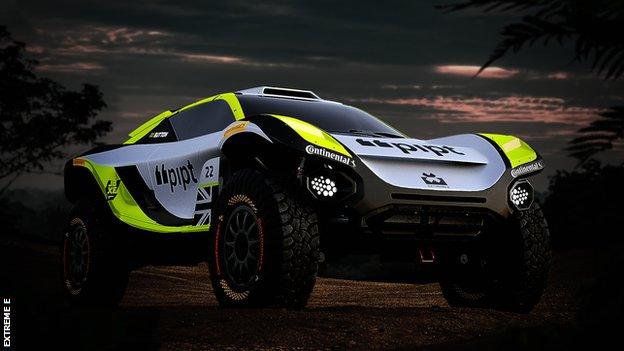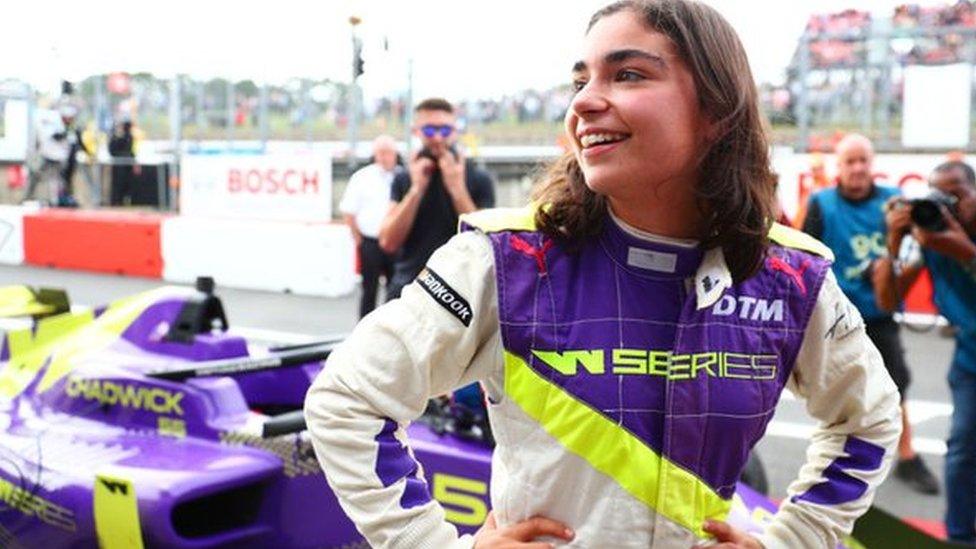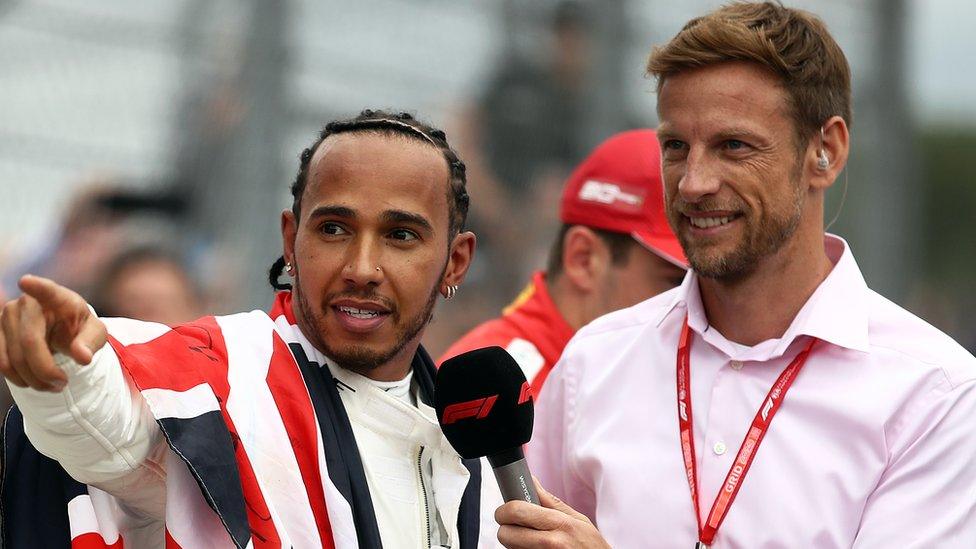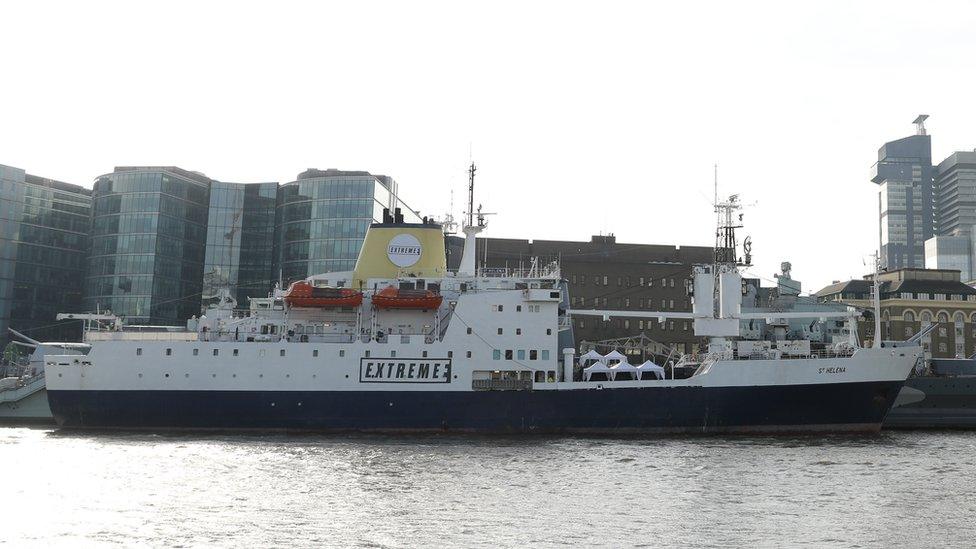What is Extreme E and is it the future of motorsport?
- Published
- comments

Button's team colours honour his 2009 F1 title-winning Brawn car
Do you love the environment? Do you like rally cars? Do you want to watch some high-intensity racing?
If you answered yes to any of these, then Extreme E might be the new sport for you!
Here's a handy guide telling you all you need to know.
What is Extreme E?
First: That 'E' isn't just there for fun - this new racing series is as eco-friendly as motor sport has ever been.
Second: The 'Extreme' is no joke. The drivers will be pushing themselves and their cars to the limit!
There's no traditional asphalt racing track like in Formula 1 for example... think a bit more challenging than that.
The all-electric SUVs (sports utility vehicles) will tackle courses in five remote parts of the world including around deserts, glaciers and rainforests!
They aim to bring attention to these areas in particular as they have all been heavily impacted by climate change.
The races are in Saudi Arabia, Senegal, Greenland, Brazil and Argentina.
Each of the locations has been selected for environmental reasons and the team behind Extreme E will work with scientists to make sure the races have a positive impact on the areas.
Who will be driving the cars?
Top drivers from across the different areas of motorsport have signed up to the series.

W Series champion Jamie Chadwick will drive for Veloce Racing Team
Former Formula 1 world champion Jenson Button, who owns a team and will drive in the races, describes these cars as "big Tonka toys with 550 horse power!"
Sir Lewis Hamilton owns a team but won't be driving as he will be busy hoping to clinch his eighth F1 world title.
Another cool thing about this series is that every car will have two drivers - one male, one female.
British driver Jamie Chadwick, who is the current W Series world champion hopes to find herself on the podium during the season.

Lewis Hamilton and Jenson Button were rivals during their F1 days and they'll bring that rivalry back in Extreme E as team owners.
Nine-time world Rally Champion Sebastien Loeb is also taking to the tracks so may have an upper hand on the tricky terrain - he will drive for Lewis Hamilton's X44 team.
Rising star of the racing world and double-amputee Billy Monger is also on the line up of potential drivers.
How do they travel to each race?
The teams, cars and their equipment will be transported from country to country via an ex-Royal Mail cargo ship - the RMS St Helena - which has been modified to act as a "floating paddock".

The RMS St Helena has been transformed into a "floating paddock" where the teams and cars will be transported to each race - this cuts down on using non-environmentally friendly forms of transport like planes and trains.
It will be setting off from Liverpool Docks and hopes to arrive in Saudi Arabia a few weeks time.
This means the transportation of the vehicles and the people working on the races can have minimal impact on the environment - something Formula 1 is often criticised for.
At each of the race locations, ecological experts have suggested how the races can bring attention to certain aspects of climate change.
They will also help to leave behind a positive environmental legacy by either planting trees, cleaning up oceans or helping to install solar-power initiatives.
Rather than use helicopters to film the races, which can also have a negative impact on the environment, the whole series will be filmed by drones.
Extreme E will also make documentaries on each of the races' locations to highlight the issues they face.
How do you win a race?
In order to reach the final, you must take part in a qualifying session.
The fastest four runners to race twice around a 16km circuit will go through to a semi-final.
The top three go through to the final. But - *plot twist* - there's one more space in that final race!
The bottom four of qualifying will take part in the 'crazy race'! The fastest team in that gets through to the final too.
What do you think of the new race? Does sport need to think about the environment more? Is this a good example? Let us know in the comments?
